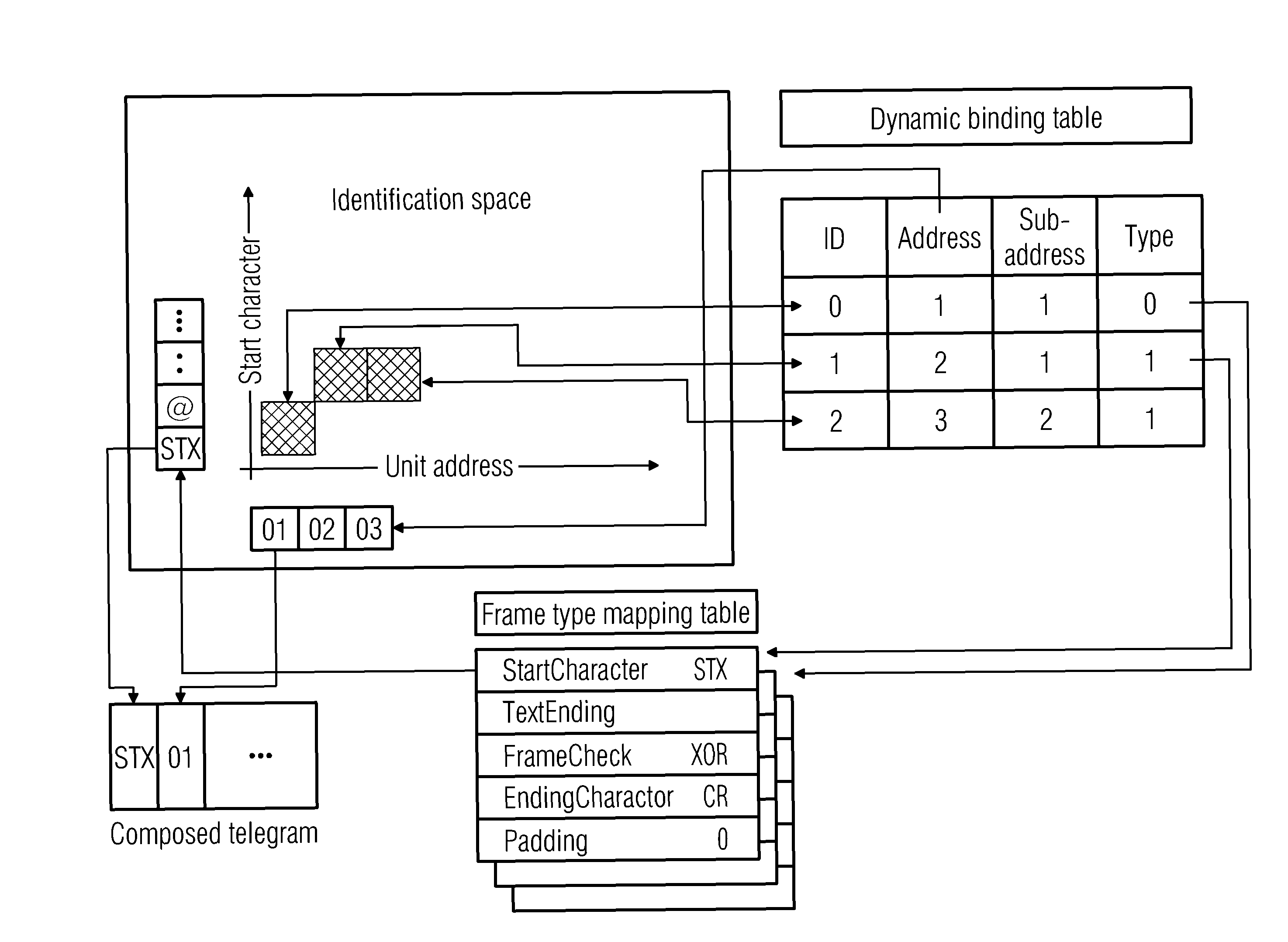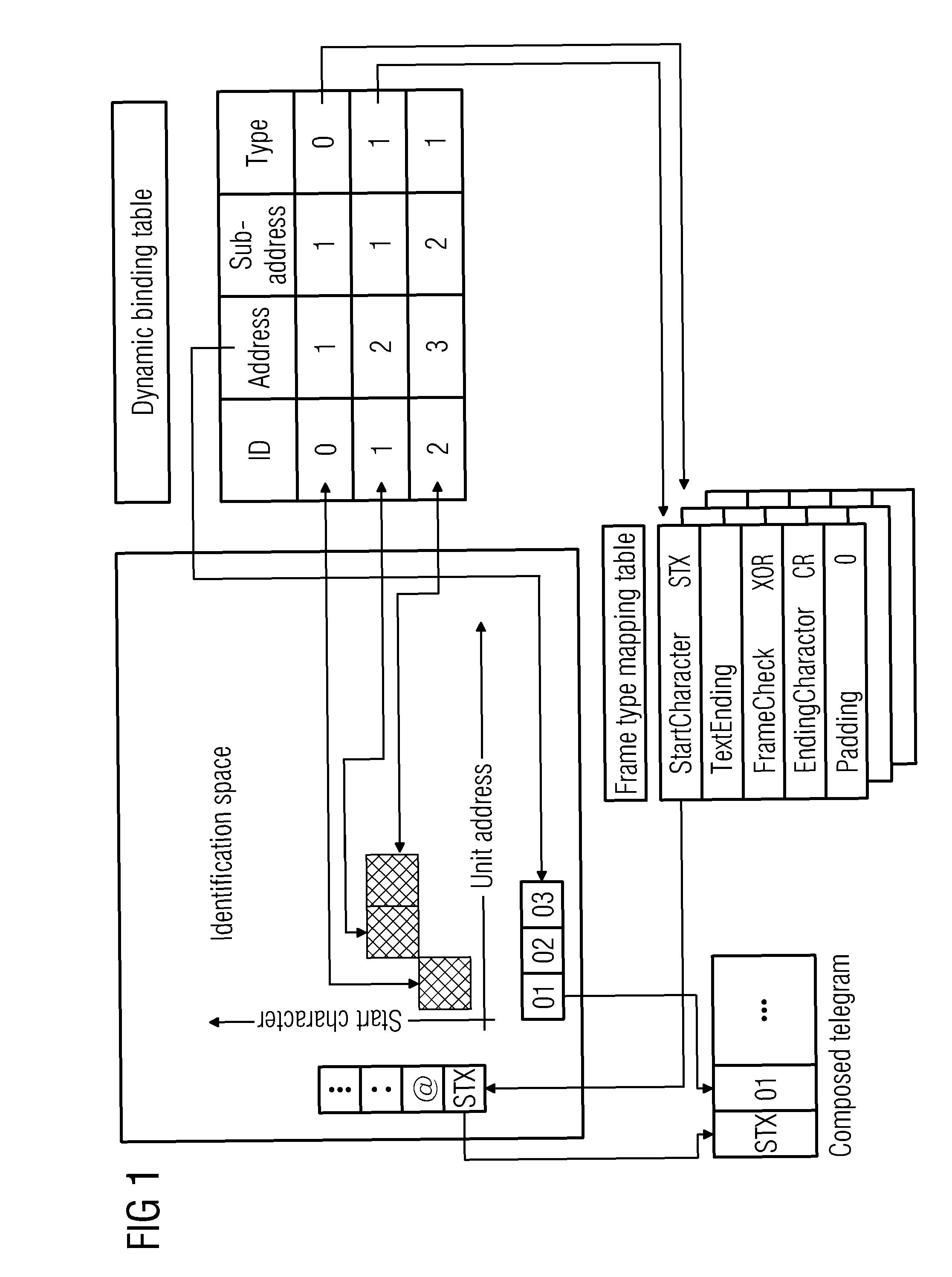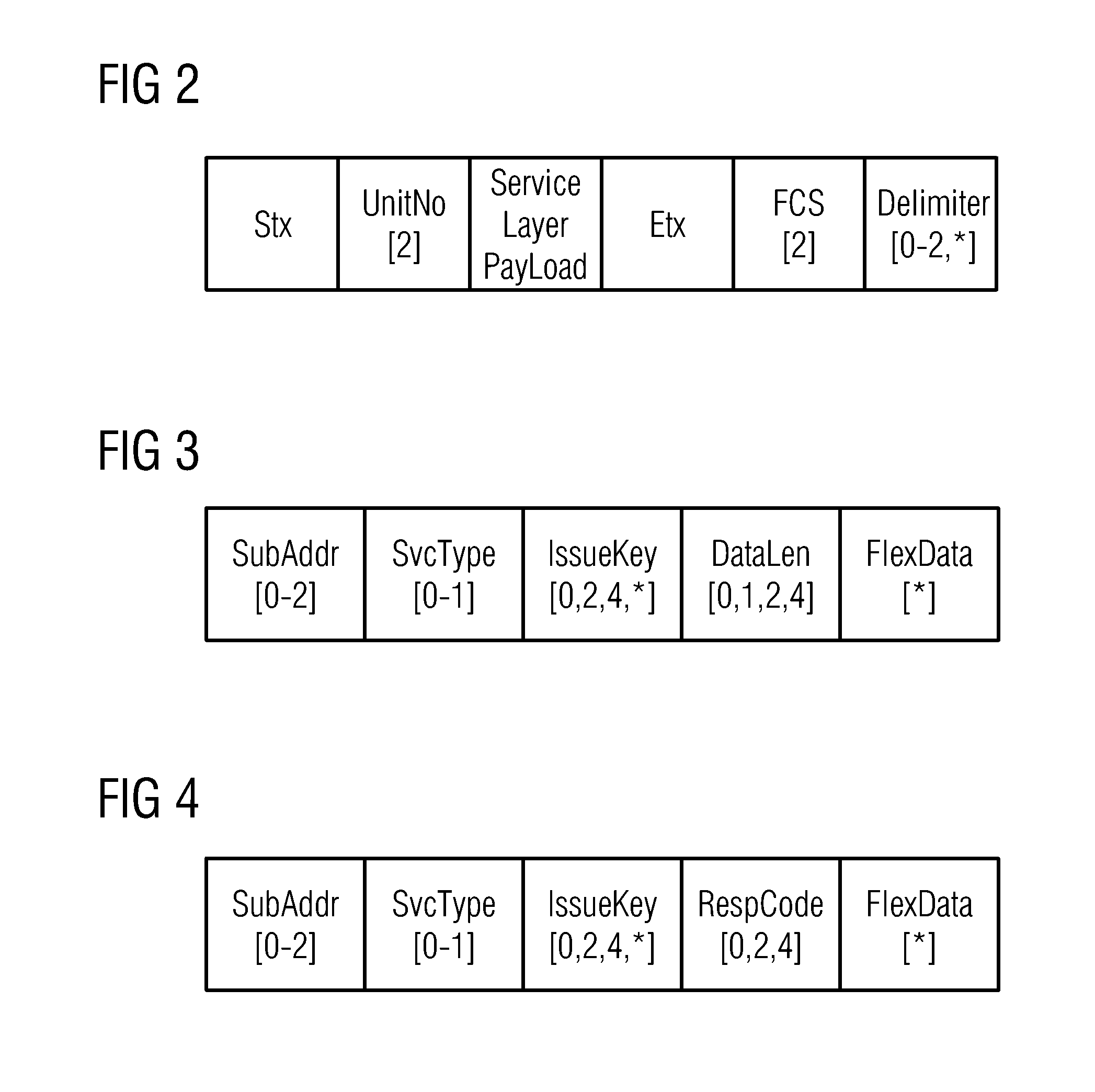Method for communication on a multidrop bus of a magnetic resonance system
- Summary
- Abstract
- Description
- Claims
- Application Information
AI Technical Summary
Benefits of technology
Problems solved by technology
Method used
Image
Examples
Embodiment Construction
[0035]The telegrams of a variety of mainstream ASCII-coded centralized communication regulators (or monitoring units) all use start characters to bind unit address formats. The present invention's adaptive protocol script for telegrams on a multidrop bus of a magnetic resonance system (Adaptive Protocol Script For Telegram Over Multidrop Bus, abbreviated below to APSTOMB) resolves adaptation problems by means of start character and main address binding for frame types, makes it possible for regulators (or monitoring units) which use a variety of different protocols to work together, and achieves multipoint communications.
[0036]Referring to FIG. 1, this shows the use of “start character+address+frame type” binding to effect mapping. In the drawing, the cross-hatched squares in the identification space correspond to the personal identification (ID) of a regulator (or monitoring unit) dynamic binding table. The dynamic binding table here is a search table which is maintained by softwar...
PUM
 Login to View More
Login to View More Abstract
Description
Claims
Application Information
 Login to View More
Login to View More - R&D
- Intellectual Property
- Life Sciences
- Materials
- Tech Scout
- Unparalleled Data Quality
- Higher Quality Content
- 60% Fewer Hallucinations
Browse by: Latest US Patents, China's latest patents, Technical Efficacy Thesaurus, Application Domain, Technology Topic, Popular Technical Reports.
© 2025 PatSnap. All rights reserved.Legal|Privacy policy|Modern Slavery Act Transparency Statement|Sitemap|About US| Contact US: help@patsnap.com



